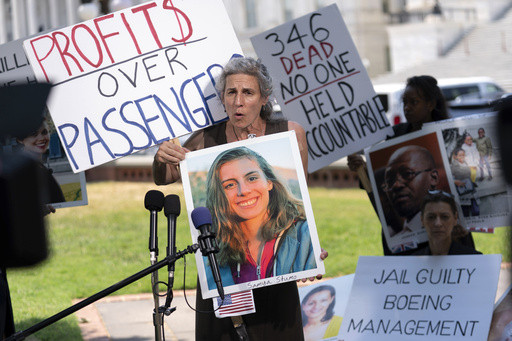In 2022, Air New Zealand set a 2030 target to reduce carbon dioxide emissions by almost 29%
Air New Zealand abandoned the 2030 target to reduce carbon dioxide emissionson the grounds that it faces difficulties in securing more efficient airplanes on the one hand and sustainable fuels on the other.
The move makes it the first major carrier to back out of trying to meet such a climate goal.
The airline added that it is working towards a new short-term target and that it is committed to becoming zero-emissions by 2050.
The aviation industry is estimated to produce around 2% of all global carbon dioxide emissions. Airlines are attempting to reduce these emissions by replacing older aircraft and using renewable fuels.
“In recent months and even more so in recent weeks, it has become apparent that potential delays to our fleet renewal plan have put the ability to meet our overall target at risk,” said Air New Zealand Chief Executive Officer Greg Foran.
In 2022, Air New Zealand set a target of 2030 to reduce its emissions by almost 29%. It was far more ambitious than a 5% reduction target over the same period set by the global airline industry.
Sustainable aviation fuel: an expensive solution
Sustainable Aviation Fuels (SAF) are key to reducing carbon dioxide emissions but airlines are struggling to buy enough of them.
“Sustainable fuels are more expensive than traditional fuels and there is no way to produce them in the quantity needed,” noted Ellis Taylor of aviation analyst firm Cirium.
The international airline body IATA said the industry’s emissions reduction target was “net zero by 2050 and airlines are not scaling back on this commitment”.
He added that while this goal was achievable, “we also rely on the right supportive measures from governments.”
Mr Taylor said airlines were also affected by delays in new aircraft deliveries, “with Boeing and Airbus under-delivering new jets in recent years, largely due to disruptions in the manufacturers’ wider supply chains”.
Boeing targeted for criminal fraud
Aerospace giant Boeing has faced a number of major issues in recent years.
This month, Boeing agreed to plead guilty to a felony fraud conspiracy charge after the US found the company violated an agreement to reform itself following two fatal crashes involving its 737 Max jets that resulted in the death of 346 passengers and crew.
The company has also come under increased scrutiny after a door panel on a Boeing plane operated by Alaska Airlines exploded shortly after takeoff and forced the jet to land.
Source: Skai
I have worked as a journalist for over 10 years, and my work has been featured on many different news websites. I am also an author, and my work has been published in several books. I specialize in opinion writing, and I often write about current events and controversial topics. I am a very well-rounded writer, and I have a lot of experience in different areas of journalism. I am a very hard worker, and I am always willing to put in the extra effort to get the job done.











